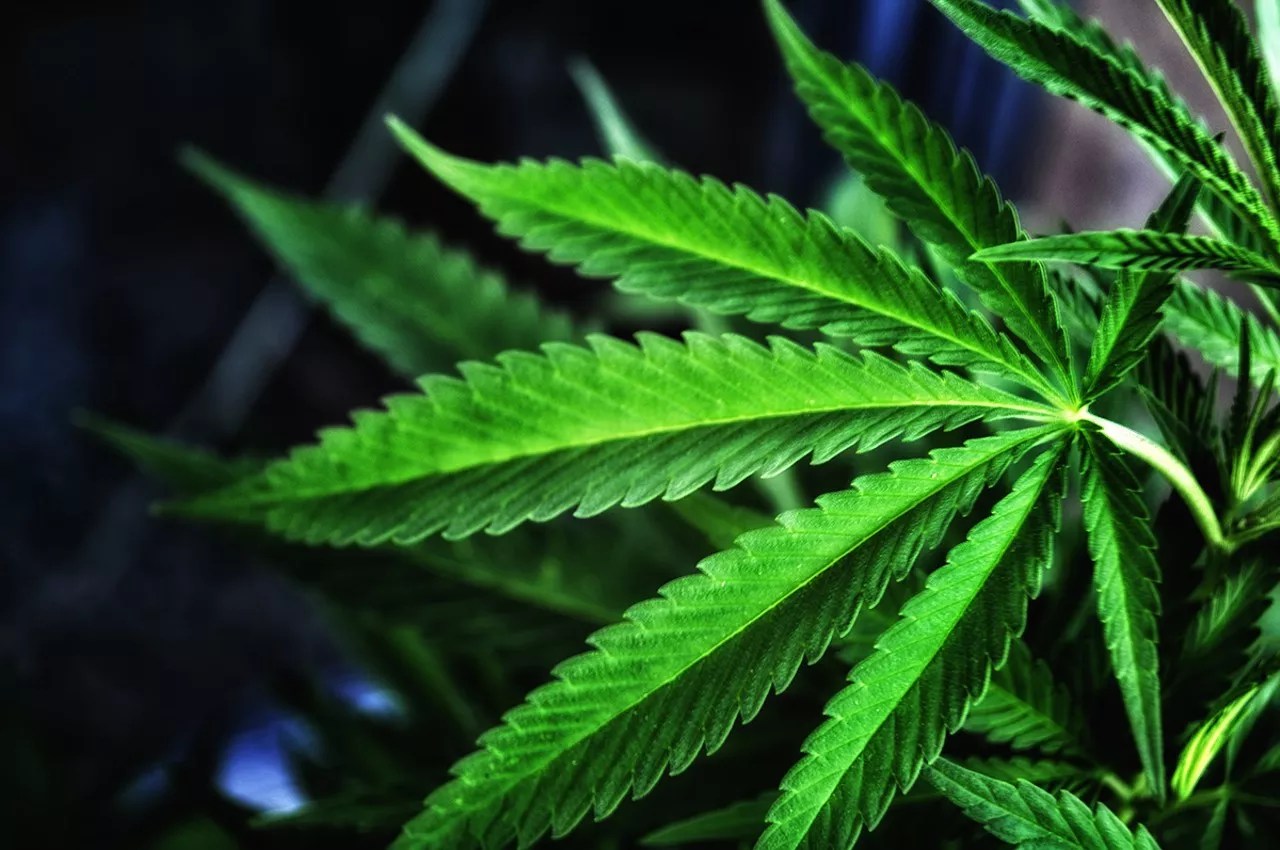
Carlos Gracia via Flickr

Audio By Carbonatix
Some Arizona lawmakers are trying again to curtail marijuana advertising near schools, among other provisions.
State Representative Joanne Osborne, a Republican who represents northwestern Maricopa and northern Yuma counties, has sponsored House Bill 2082, directing the Arizona Department of Health Services to enact new restrictions on cannabis advertising.
Among several provisions, the bill would restrict ads near schools or churches and ban images that appeal to kids. It would also prohibit the sale of marijuana to “obviously intoxicated” people and halt the practice of free in-store samples.
Some advocates for the bill, including the sponsor, are zeroing in on what they say will protect kids. These parameters include restrictions on advertising – although it is unclear from the bill what kinds of advertising – within one mile of any public school or private school. In big cities, that may be complicated. Phoenix alone has more than 500 public, private and charter schools. Currently, Phoenix covers 517 square miles.
The bill also prohibits billboards “within one thousand feet, if in the line of sight, of any child care center, church, public park, public playground or public or private school.”
It also legislates against using graphics designed to attract individuals under 21 years old. It builds off an already codified rule against advertising products with names similar to food or drinks brands marketed to children and shapes that resemble cartoons and toys, among others.
“We really need something on the books to protect children,” said Dr. Gary Kirkilas, spokesperson for the Arizona chapter of the American Academy of Pediatrics. The chapter has been advocating for this bill at the Capitol, meeting with Osborne and others, according to Kirkilas.
“I don’t think we are going to be hurting their industry that much by saying, ‘Hey look, just don’t advertise just don’t advertise around schools,'” he said. “Or better yet, don’t advertise open air. I just don’t see the logic behind why they absolutely need to advertise.”
For some, banning billboards near schools is a no-brainer.
“The advertising restrictions are not unrealistic,” said Demitri Downing, founder and CEO of Arizona’s Marijuana Industry Trade Association. “You don’t want … products advertised at the playground. There are certain places you don’t want advertising in general.”
The bill would also ban free samples for on-site consumption at dispensaries.
Dr. Andrew Carroll, member of the Arizona Academy of Family Physicians legislative task force and physician, imagines samples at dispensaries could be comparable to “going to the yogurt shop with a little tiny cup and you get to taste the yogurt before you get the whole thing at Yogurtland.” The group is focused on the possibility of someone becoming inebriated in the dispensary, potentially leading to negative consequences.
But Arizona law already prohibits smoking marijuana in a public or open space, and also bans the consumption of marijuana and marijuana products while driving, operating, or even riding in the passenger seat of a vehicle.
The Arizona Academy of Family Physicians opposed adult-use marijuana in the state, and the group is still trying to limit the availability of marijuana products even after legalization, Carroll said. That’s part of the reason why the physicians’ group is a proponent of the bill, according to Carroll.
Some who oppose the bill say it limits other areas of the cannabis industry.
Downing said legislators didn’t have the foresight to legalize cannabis on their own so that they could regulate it. So the bill is “nitpicking” at cannabis in a way unseen for other products, such as alcohol. HB 2082 seeks to curtail marijuana establishments from “sponsoring any athletic, musical, artistic or other social or cultural event or any entry fee or team, unless all attendees are 21 years of age or older,” the bill states. Osborne wants to draw the line, should “Johnny Reefer” sponsor the Little League, Osborne said during a House Human Services Committee meeting on January 24.
Some opponents of the bill take issue with these restrictions, drawing attention to how the alcohol industry markets its products, despite the legal drinking age being 21 and over.
“Where can you advertise alcohol? You have NASCAR events. You walk into the [Arizona] Cardinals’ football stadium, and there’s a big old Bud Light sign,” Downing said. He hopes people reflect on why alcohol has permeated advertising and sponsorships, even in places where attendees may be under 21, rather than “coming after” the cannabis industry by barring it from the same opportunities.
“While [legislators] do have some valid concerns, those concerns should be addressed in conjunction with the cannabis industry,” Downing said.
This is the second time the bill has been proposed in the legislature, Osborne said during the January 24 committee meeting. Osborne introduced a similar bill, House Bill 2809, in 2021. Despite receiving 57 votes in the House, the bill died in the Senate, receiving only 18 of the necessary 23 votes in the 30-member Senate.
At the time, Democrats voiced concerns about the ban on event sponsorships as well as the definition of “obviously intoxicated,” according to the Arizona Capitol Times. With a few changes to the bill, it has still struggled to get Democrats’ support in committee this legislative session.
The latest version of the bill passed 6-3 in the House Human Services Committee on January 24, with two of three Democrats on the committee voting no. The outlier was Democratic State Representative Amish Shah, a doctor-turned-legislator who voted yes during the committee meeting. On January 31, the bill passed 5-3 in the Rules Committee, with all three Democrats on the committee voting no.
Because the bill would modify a voter initiative, it would need the approval of three-quarters of the House and Senate to become law, currently an unlikely prospect. As of Wednesday, the bill had not been assigned to any other committees nor had it been voted on the House floor.
“When an idea is floating out there in the legislature,” Downing said, “it’s never dead till sine die.”